Liberal Arts Colleges and Small Universities Network Meeting, September 2018
The Network for Liberal Arts Colleges and Small Universities met for a two-day conference at Colby College in Waterville, Maine (USA). Hosted by Kerill O'Neill, the Director of the Center for the Arts and Humanities at Colby College, the conference brought together scholars and center directors from around the country and as far away as China to discuss past and on-going humanities-related projects at various member organizations.
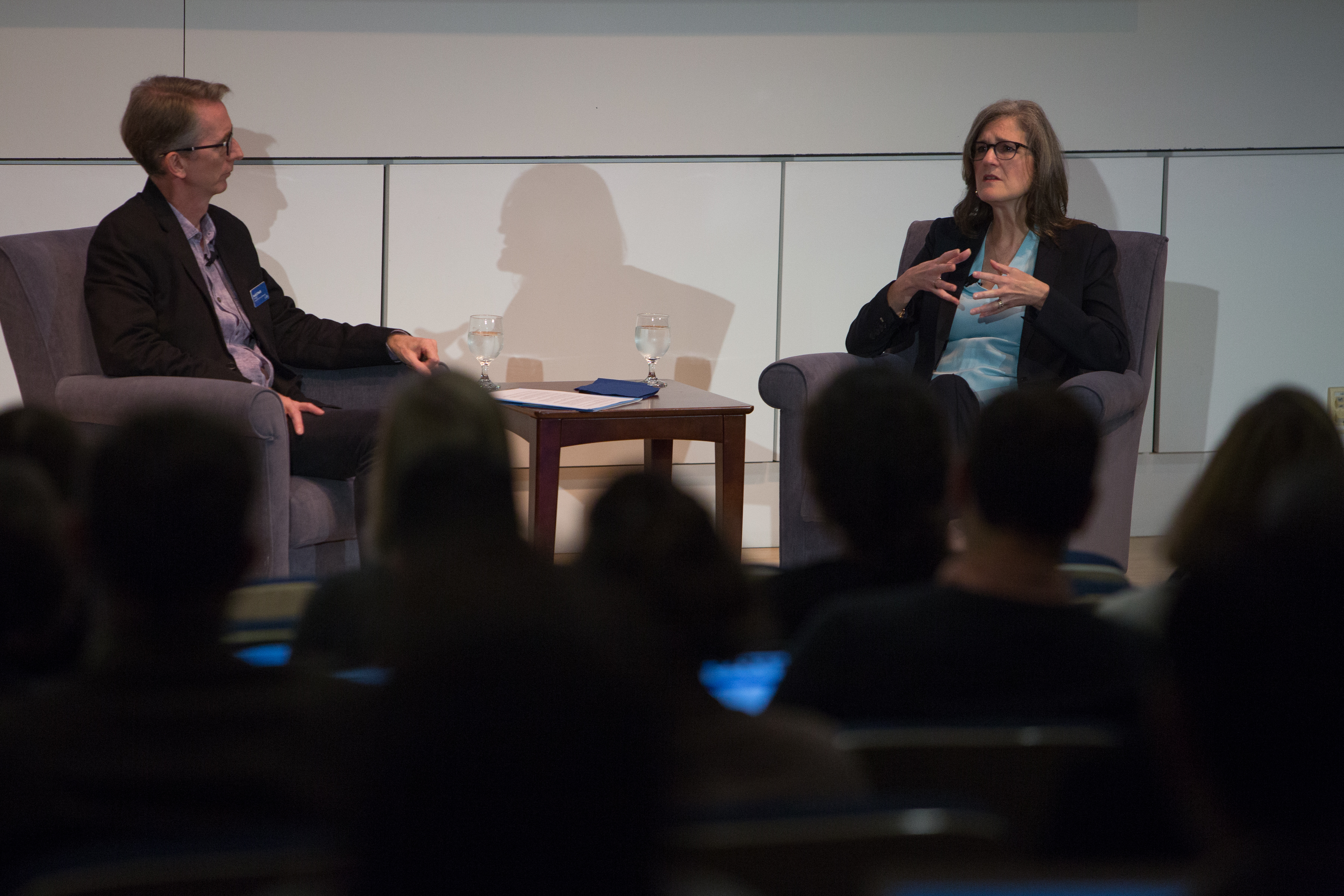
The conference began with a conversation between Kerill O'Neill and Dianne Harris, Senior Program Officer for Higher Education and Scholarship in the Humanities at the Andrew W. Mellon Foundation. In a wide-ranging conversation, Dianne Harris emphasized the value of making humanities research relevant to undergraduate students and the role humanities centers and institutes can play in that endeavor.
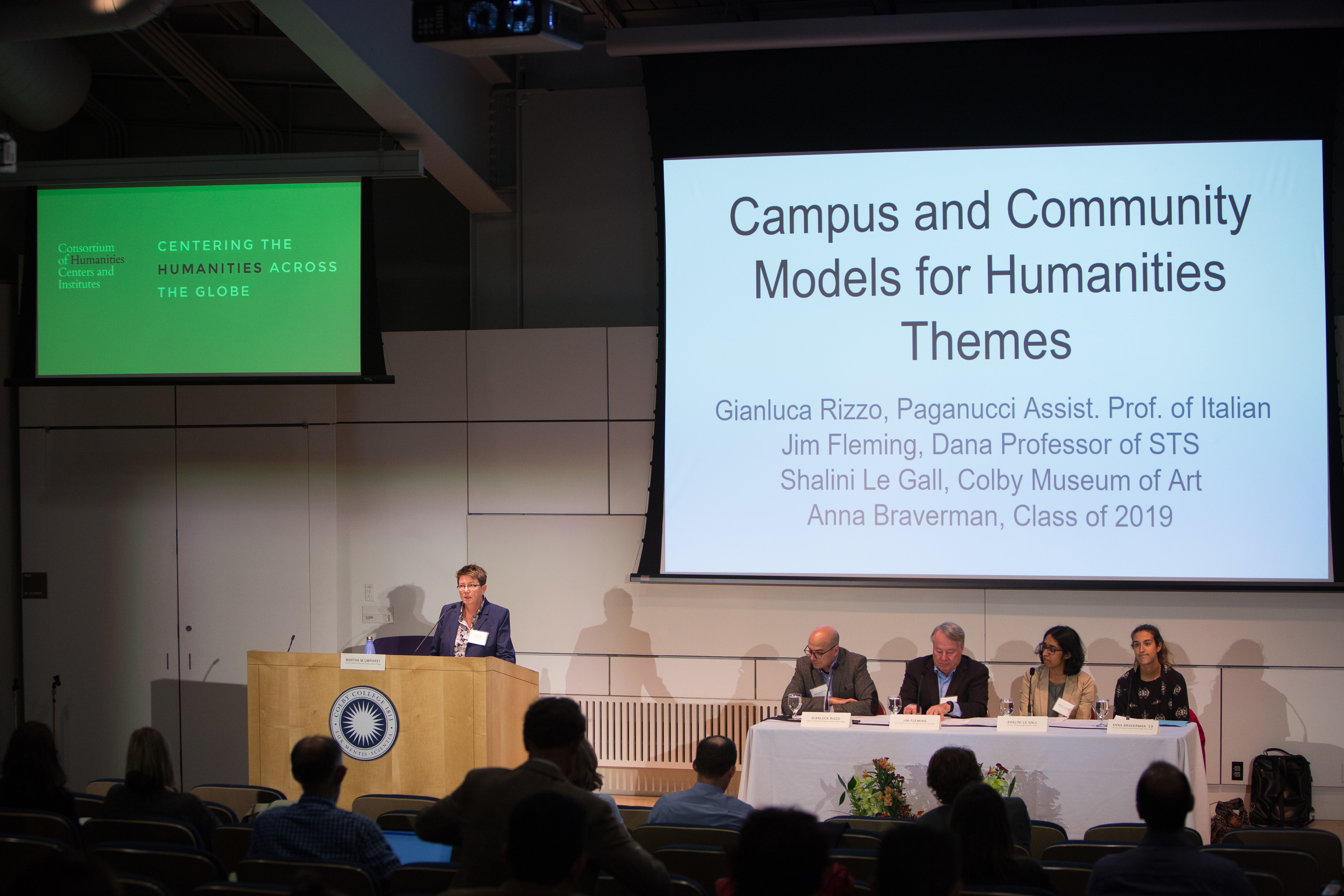
The meeting was an opportunity for scholars to share their successful humanities-related programming. In this panel representing Colby College, faculty members Gianluca Rizzo, Jim Fleming, and Shalini Le Gall, and undergraduate Anna Braverman discussed how they used an annual theme to organize an integrated calendar of on-campus activities and off-campus excursions.
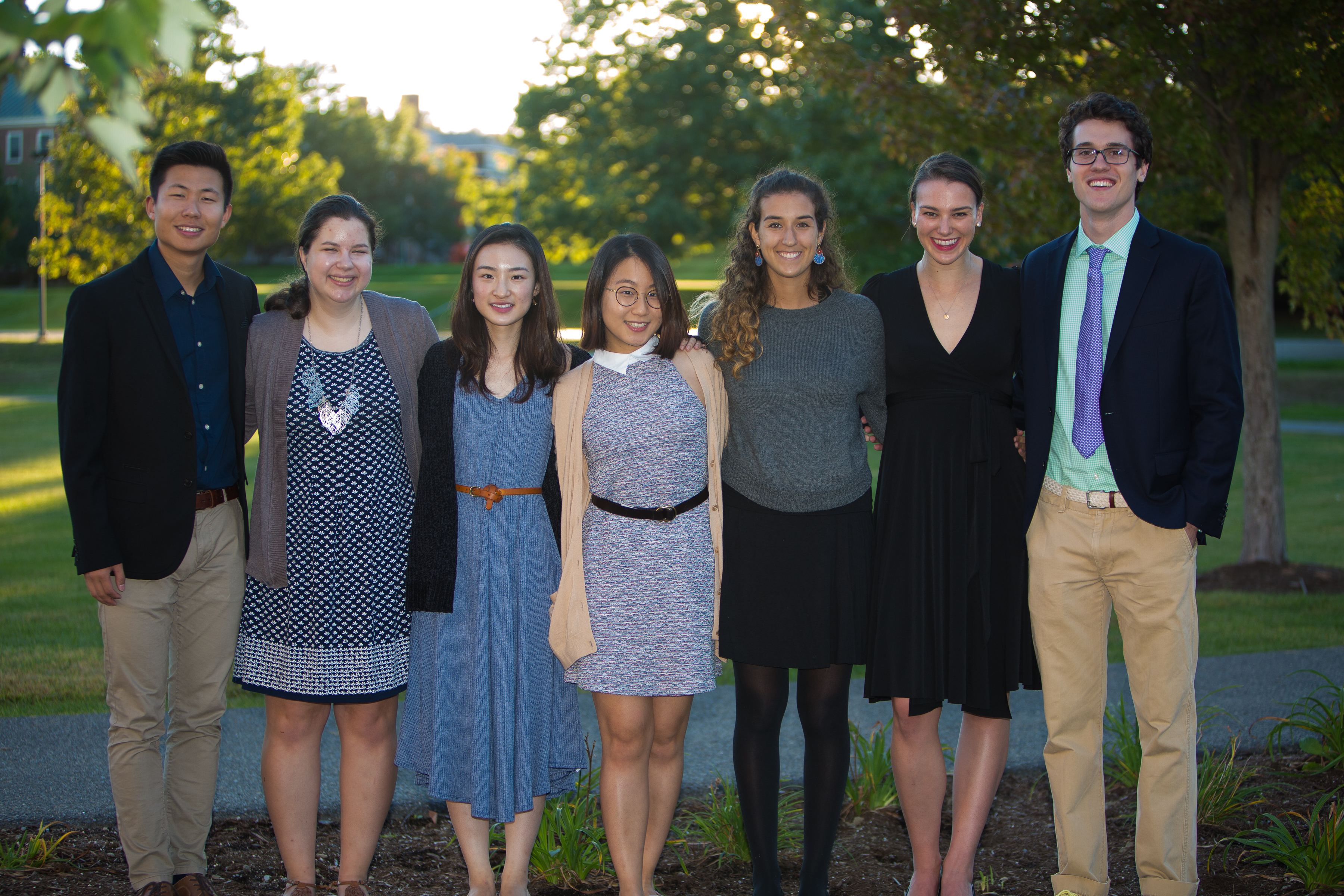
Liberal arts colleges and small universities are unique in the landscape of higher education for their smaller class sizes and their focus on undergraduate education. At the LACSU meeting, undergraduates were encouraged not only to attend, but also participate. Anna Braverman (third of right) discussed the role and contributions of student advisory boards at humanities centers. Two undergraduates from Wake Forest University, Amanda Rosensky and Reilly Grace Marshall (not pictured), presented papers alongside their professors about the student experience in a Public Humanities course.
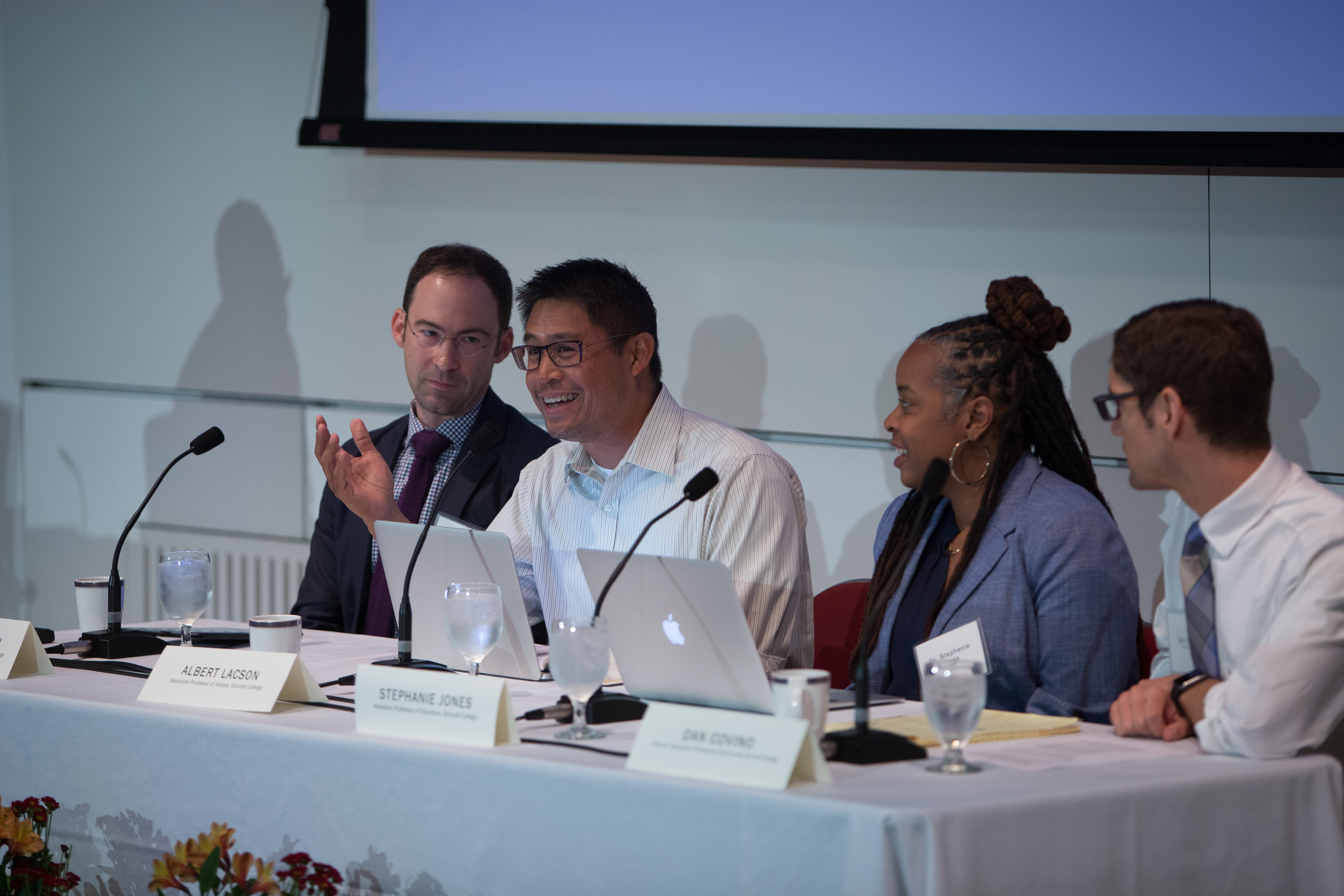
Humanities centers and institutes at small institutions are not only focused on their own students. Caleb Elfenbein, Albert Lacson and Stephanie Jones, and Dan Covino of Grinnell College discussed a Public Humanities project they undertook where they forged a working relationship with their local school district of Grinnell, Iowa (USA). Their project is merely one way that humanities centers can leverage their expertise and resources to serve the local community.
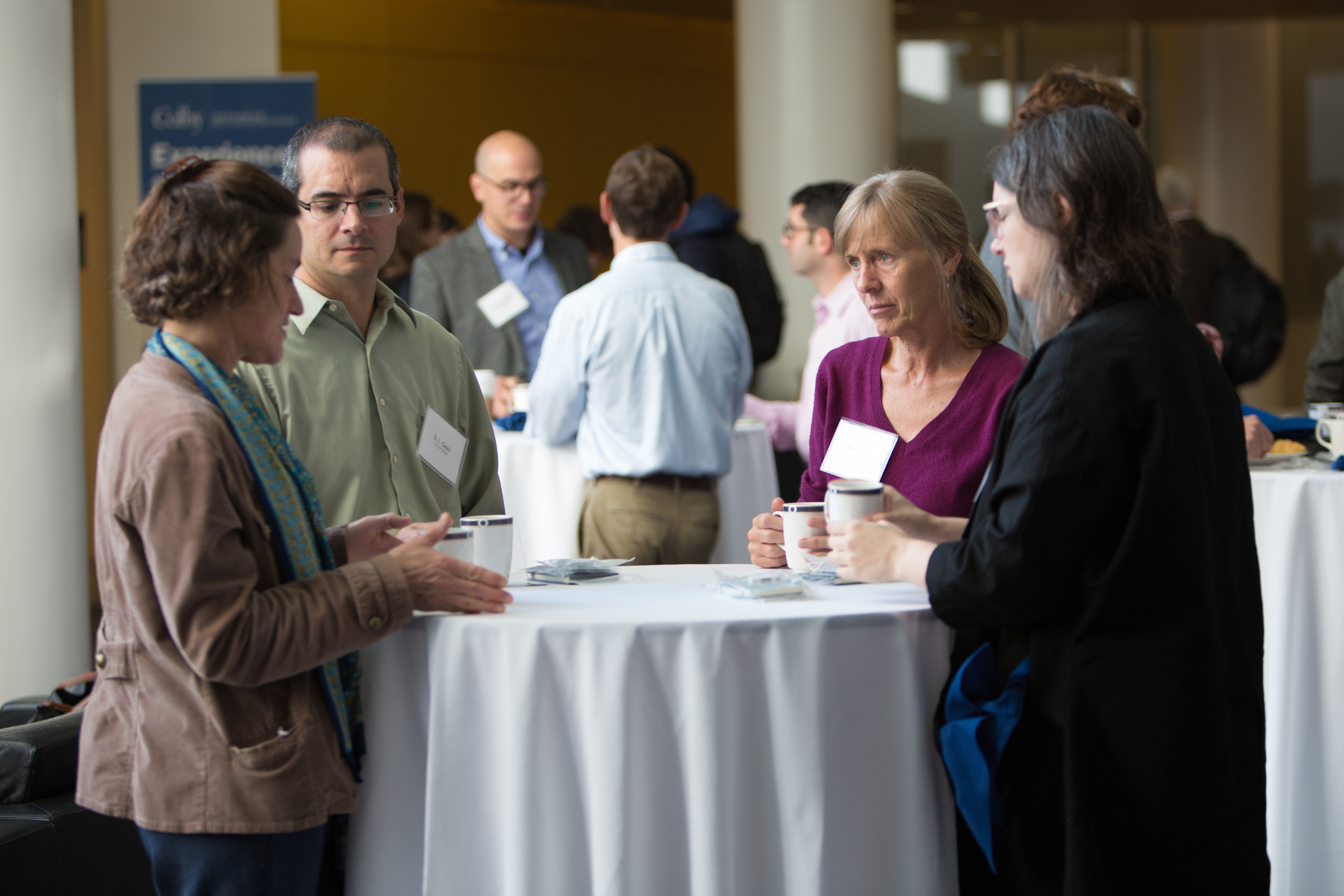
Beyond the panel presentations, the LACSU network meeting is an opportunity for people from similarly organized institutions to meet each other, forge collaborative relationships, and exchange best practices. This particular conference featured long question and answer sessions that led to free flowing group conversations that continued through coffee and lunch.
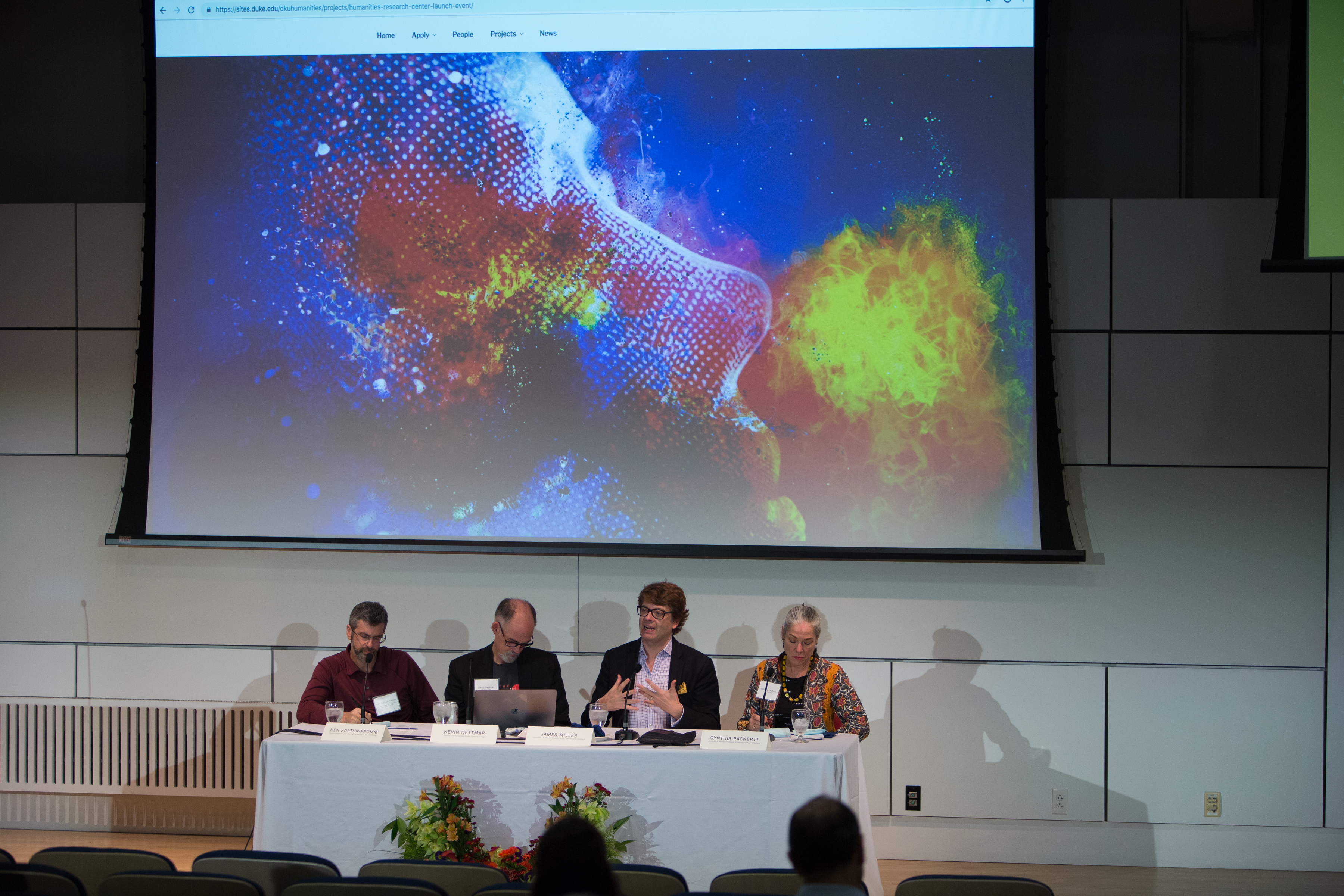
The conference closed with a panel reflection on the biggest lessons learned. The panel was chaired by Kevin Dettmar (second from left) of Pomona College's newly formed Humanities Studio. Ken Koltun-Fromm (left) of Haverford College's Hurford Center for the Arts and Humanities, encouraged by the work of his peer organizations, pushed the audience to think about new ways of defining success and engaging with the public. James Miller (second from right) of Duke Kunshan University's Humanities Research Center brought an international perspective in his reflection about starting a liberal arts college in China. Cynthia Packert of Middlebury College reflected on her experience attempting to start a Center on campus and encouraged attendees to continue to forge collaborative relationships with neighboring institutes.
We hope that the conversations started at the meeting in Maine will continue among our members and we intend to use this website as a repository for information and resources. In the coming months, we expect to post videos of all the panel presentations at the LACSU meeting.